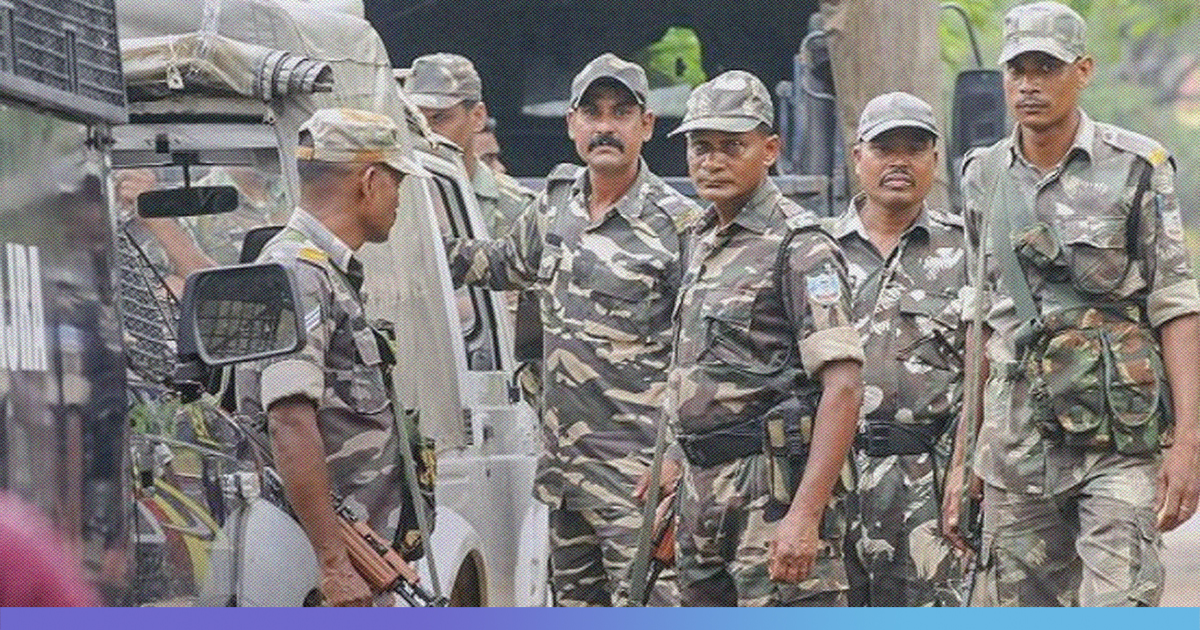Soon after the Minister of Home Affairs of India (MHA) on July 25 ordered to send additional 10,000 paramilitary personnel in the Valley, a rumour that the move is part of the Centre’s plan to abrogate Article 35A started spreading.
The rumour incepting from the fear of backlash, if Article 35A and Article 370 are fiddled with. The fear among the people was palpable considering the BJP in its election manifesto had stressed upon annulling Article 370 and Article 35A. Several senior BJP leaders, since the BJP came to power in 2014, have referred to Article 35A and Article 370 as an impediment to the State’s development.
“In the last five years, we have made all necessary efforts to ensure peace in Jammu and Kashmir through decisive actions and a firm policy. We are committed to overcome all obstacles that come in the way of development and provide adequate financial resources to all the regions of the state. We reiterate our position, since the time of the Jan Sangh, to the abrogation of Article 370,” the BJP’s 2019 Lok Sabha manifesto read.
“We are committed to annulling Article 35A of the Constitution of India as the provision is discriminatory against non-permanent residents and women of Jammu and Kashmir,” it further read.
Commenting on the centre’s move to deploy additional forces in the valley, Former Chief Minister of Jammu and Kashmir (J&K) Mehbooba Mufti, said, “The Centre’s decision to deploy additional 10,000 troops to the Valley has created fear psychosis among people.”
Bureaucrat-turned politician Shah Faesal, linking the centre’s move with Article 35A, said, “No one knows why this sudden mobilization of forces is being done. Rumour is that something sinister is about to happen. Article 35A?” He further stated that rumours have scared many tourists away and, “It is sad that the government is not doing enough to stop the rumours.”
However, the government, in its order, said, that it has deployed the forces, “in order to strengthen the CI (counter-insurgency) grid as well as for maintaining law & order situations in J&K”.
Further, additional director general police, law and order, Muneer Khan has said that the rumours about the abrogation of Article 370 and Article 35A are not new and have been circulating for the past three months.
Presence Of Security Forces In Valley
The additional deployment of 100 companies of Central Armed Police Forces (CAPFs) have been ordered with respect to inputs related to Pakistan army-backed terrorists planning to carry out a major terror attack on Indian soil, according to the sources in the government.
The forces have been deployed in addition to 40,000 additional Central paramilitary forces deployed for the security of the 45-day Amarnath Yatra and other security-related duties in the Valley.
This is not the first time that the Centre has sent additional forces to the Valley. Last year, the government had sent 200 companies of paramilitary troops for election duty in Kashmir.
According to a report presented by the department-related parliamentary standing committee on home affairs in the Lok Sabha, in December 2018, revealed that about 26% battalions of the total 235 CRPF battalions, were deployed in J&K.
As per a 2015 report by Jammu Kashmir Coalition of Civil Society (JKCCS), there are estimated 6.5 lakh to 7.5 lakh security personnel including soldiers, paramilitary forces and the police are deployed in the State.
Article 370 In Kashmir?
Article 370, included in the Constitution on October 17, 1949, permits the J&K to draft its own Constitution. It exempts J&K from the Indian Constitution (except Article 1 and Article 370 itself) and restricts Parliament’s legislative powers in J&K.
The Article mandates that “concurrence” of the state government is mandatory for extending a central law on subjects not included in the Instrument of Accession (IoA). The IoA was signed by the last Dogra ruler of J&K Maharaja Hari Singh on 26 October 1947.
The IoA was a legal document introduced by the Government of India Act 1935 and used in 1947 to enable leaders of nearly 600 princely states to remain an independent country, join India, or join Pakistan.
While all the princely states under British rule agreed according to the rules of IoA and sided either with India or Pakistan, an exception was made with respect to J&K.
With respect to J&K, the Instrument of Accession gave Parliament the power to legislate only on Defence, External Affairs and Communications.
“Instrument of Accession cannot be varied by any amendment of the Act or of Indian Independence Act unless such amendment is accepted by me by an Instrument supplementary to this Instrument,” states the IoA signed by Raja Hari Singh.
The IoA further states, “nothing in this Instrument shall be deemed to commit me in any way to acceptance of any future constitution of India or to fetter my discretion to enter into arrangements with the Government of India under any such future constitution”.
With the headline ‘Temporary, Transitional and Special Provisions’, Article 370 is the first article of Part XXI of the Constitution. And only J&K Constituent Assembly has the right to modify/delete/retain.
The Article was meant to be a temporary provision initially.
What Is Article 35A?
Article 35A of the Indian Constitution has been controversial ever since its incorporation seven decades ago, in 1954. It was inserted in the constitution on the recommendation of J&K’s Constituent Assembly through a Presidential Order.
The Article gives the J&K Legislature complete freedom to define a “permanent resident” of the state, to provide special rights and privileges to those permanent residents.
It also restricts the employment of persons of other states in J&K and prohibits the acquisition of immovable property and settlement, among others.
Also Read: Govt Requests SC To Stall Hearings On Article 35A; Know What 35A Is About










